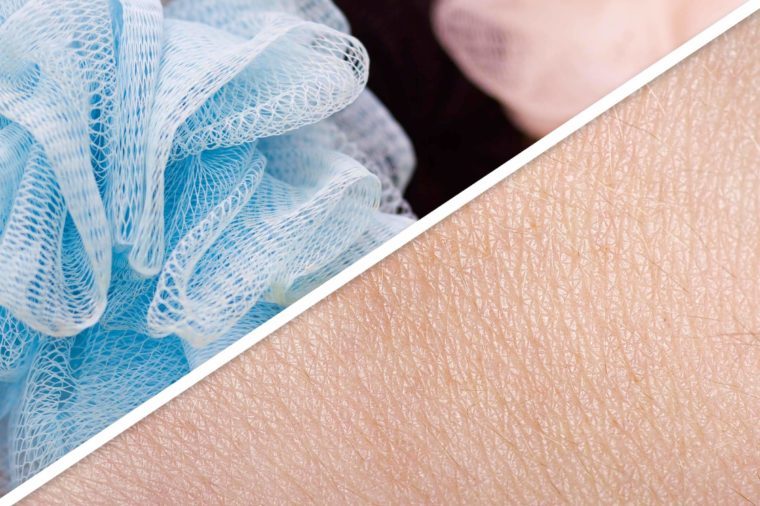
You may think you’re scrubbing away dirt when you wash with a loofah, but you could actually be harming the delicate balance of good bacteria on your skin. “We now understand that to maintain skin health, we must protect our skin’s healthy rain forest of powerful bugs that comprise the skin’s microbiome,” says dermatologist Whitney Bowe, MD, author of The Beauty of Dirty Skin. “Research has shown that our good bugs can prevent infection, control inflammation, aid in wound healing, and keep skin looking younger.” Instead of harsh cleansing that can cause skin damage, exfoliate—using your hands—no more than twice a week, Dr. Bowe says. Find out the other things dermatologists never put on their faces.
Contents
- 1 You take hot showers
- 2 You skip face-washing
- 3 You drink fat-free milk
- 4 You indulge in diet soda
- 5 You shop in the middle of the grocery store
- 6 You take antibiotics
- 7 You forget daily sunscreen
- 8 You don’t wear sunglasses
- 9 You consume alcohol
- 10 You avoid veggies
- 11 You smoke
- 12 You skimp on sleep
- 13 You’ve given up coffee
- 14 You pop pimples
You take hot showers
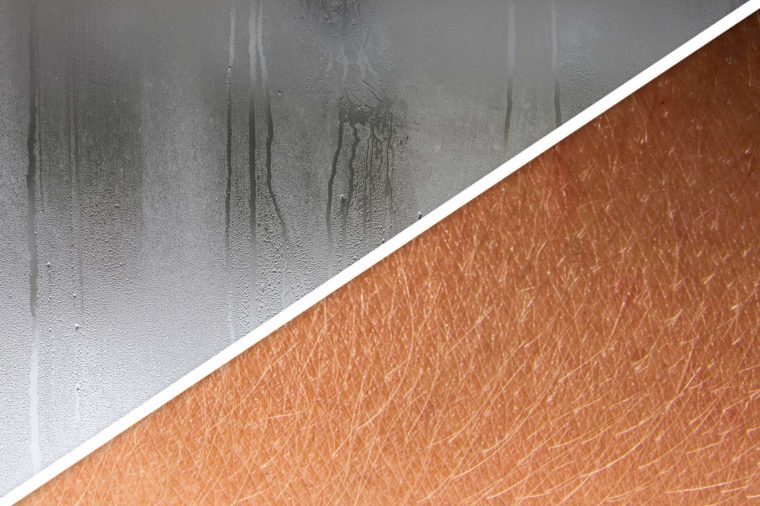 Maybe you think you need hot water to kill germs, or maybe you just like how the warmth relaxes your muscles—but hot showers are no friend to your skin. “Hot showers strip your skin of its natural oils, drying it out, while also potentially causing a breeding ground for unfriendly skin bugs to proliferate,” Dr. Bowe says. “I encourage my patients to take a warm shower—not too hot—to preserve their skin’s moisture barrier and overall health.” Read about more habits that are sucking the hydration out of your skin.
Maybe you think you need hot water to kill germs, or maybe you just like how the warmth relaxes your muscles—but hot showers are no friend to your skin. “Hot showers strip your skin of its natural oils, drying it out, while also potentially causing a breeding ground for unfriendly skin bugs to proliferate,” Dr. Bowe says. “I encourage my patients to take a warm shower—not too hot—to preserve their skin’s moisture barrier and overall health.” Read about more habits that are sucking the hydration out of your skin.
You skip face-washing
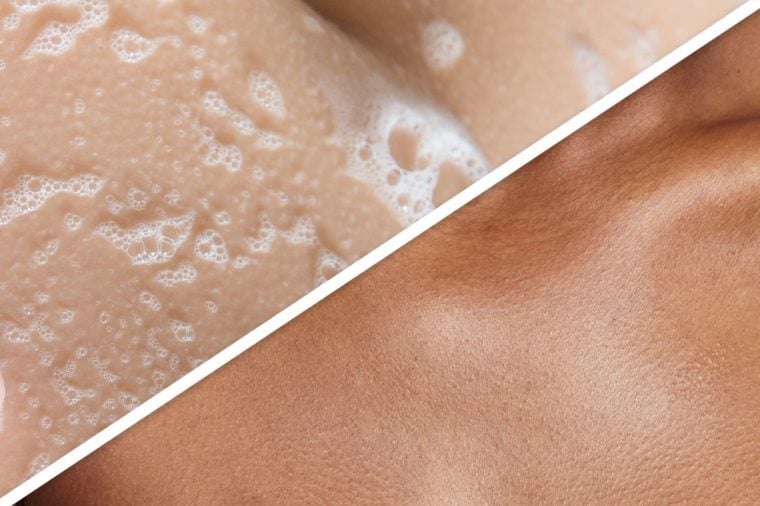 On the other hand, you don’t want to avoid washing your face altogether. According to one survey, more than half of people polled often skip washing their face before bed. This will lead to a buildup of dirt and old skin cells, especially if you use heavy makeup. The American Academy of Dermatology advises washing your face twice a day, and after sweating heavily (like after a workout). Dr. Bowe says to be sure to wash with gentle, moisturizing cleansers. Check out the face-washing mistakes you didn’t know you were making.
On the other hand, you don’t want to avoid washing your face altogether. According to one survey, more than half of people polled often skip washing their face before bed. This will lead to a buildup of dirt and old skin cells, especially if you use heavy makeup. The American Academy of Dermatology advises washing your face twice a day, and after sweating heavily (like after a workout). Dr. Bowe says to be sure to wash with gentle, moisturizing cleansers. Check out the face-washing mistakes you didn’t know you were making.
You drink fat-free milk
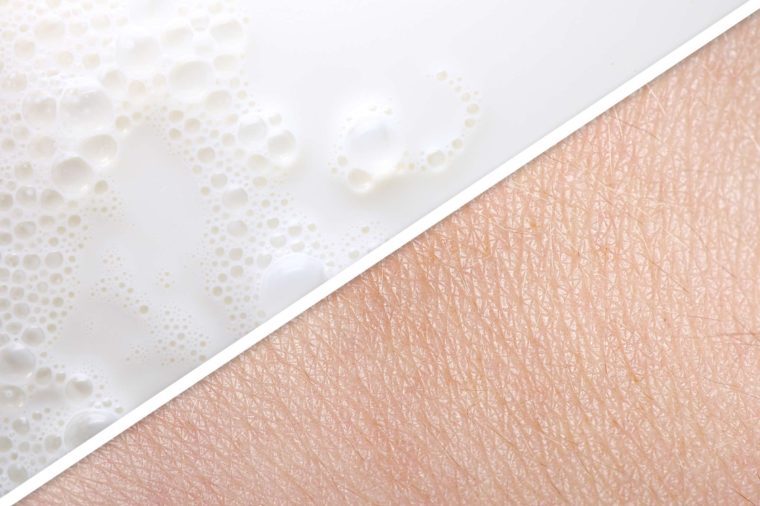 Fat-free products, which you might think may help you lose weight, can actually harm your skin. A study from Penn State found an association between consumption of fat-free milk—but not full-fat milk—and greater instances of acne. “The milk proteins, whey and casein, can impact insulin levels and unleash major systemic inflammation,” Dr. Bowe says. “Importantly, whey and casein are often added in even greater quantities to skim milk in order to help thicken these fat-free milks.” She suggests unsweetened non-dairy milks like almond, hemp, flax, or coconut instead. Here are more foods you didn’t know could be triggering acne.
Fat-free products, which you might think may help you lose weight, can actually harm your skin. A study from Penn State found an association between consumption of fat-free milk—but not full-fat milk—and greater instances of acne. “The milk proteins, whey and casein, can impact insulin levels and unleash major systemic inflammation,” Dr. Bowe says. “Importantly, whey and casein are often added in even greater quantities to skim milk in order to help thicken these fat-free milks.” She suggests unsweetened non-dairy milks like almond, hemp, flax, or coconut instead. Here are more foods you didn’t know could be triggering acne.
CONTENT CONTINUES BELOW AD
You indulge in diet soda
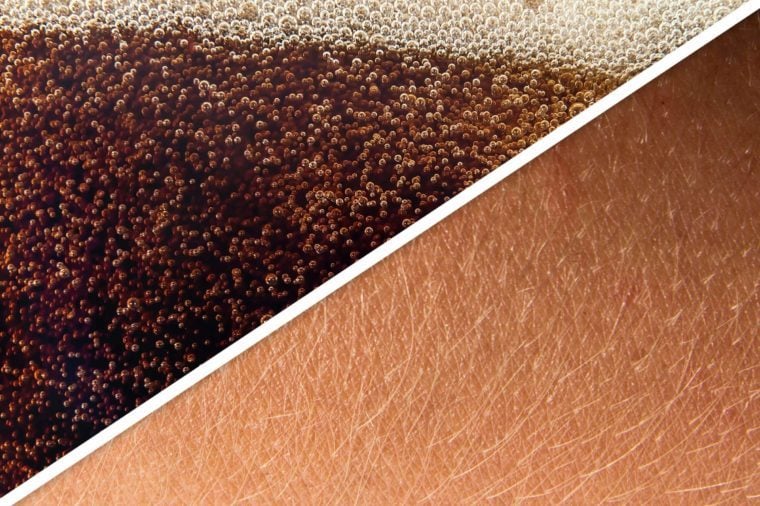 “Artificial sweeteners are linked to acne, diabetes, and rosacea,” Dr. Bowe says. Studies are emerging that suggest sweeteners may affect insulin levels, increase inflammation, and change the composition of good bacteria in your gut—and all this can show up on your face. “High insulin levels are a primary cause of hormonal imbalances and skin disorders, especially acne,” Dr. Bowe says. “Since artificial sweeteners throw your blood sugar balance off, they too are capable of triggering skin issues.”
“Artificial sweeteners are linked to acne, diabetes, and rosacea,” Dr. Bowe says. Studies are emerging that suggest sweeteners may affect insulin levels, increase inflammation, and change the composition of good bacteria in your gut—and all this can show up on your face. “High insulin levels are a primary cause of hormonal imbalances and skin disorders, especially acne,” Dr. Bowe says. “Since artificial sweeteners throw your blood sugar balance off, they too are capable of triggering skin issues.”
You shop in the middle of the grocery store
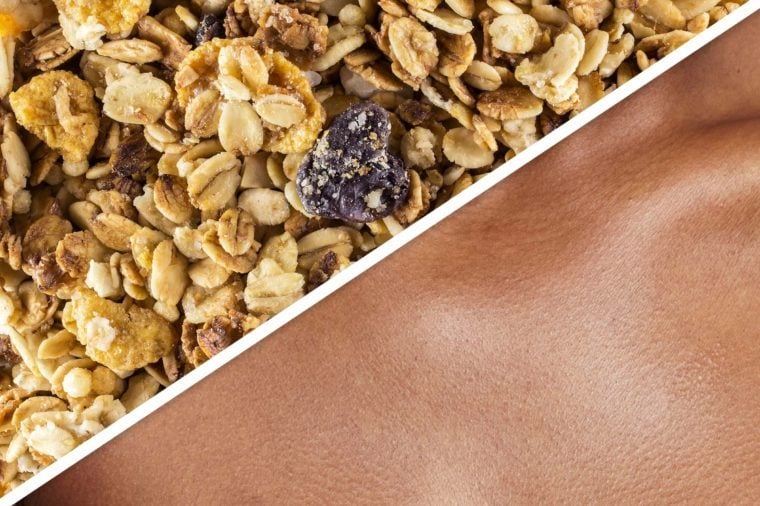 Processed foods affect not only your waistline, but your skin’s appearance—and that goes even for foods that are supposed to be “healthy,” like energy bars. “Processed foods contain refined carbohydrates and sugars, which have been scientifically linkedto acne and premature aging,” Dr. Bowe says. “This fiber-deficient junk food slows digestion and disturbs your healthy gut bugs, precipitating leaky gut, and giving rise to inflammation.” Instead, try whole foods with a low or medium glycemic index, like steel-cut oats, leafy greens, quinoa, sweet potatoes, and asparagus, she says. Don’t miss the signs your gut bacteria are in trouble.
Processed foods affect not only your waistline, but your skin’s appearance—and that goes even for foods that are supposed to be “healthy,” like energy bars. “Processed foods contain refined carbohydrates and sugars, which have been scientifically linkedto acne and premature aging,” Dr. Bowe says. “This fiber-deficient junk food slows digestion and disturbs your healthy gut bugs, precipitating leaky gut, and giving rise to inflammation.” Instead, try whole foods with a low or medium glycemic index, like steel-cut oats, leafy greens, quinoa, sweet potatoes, and asparagus, she says. Don’t miss the signs your gut bacteria are in trouble.
You take antibiotics
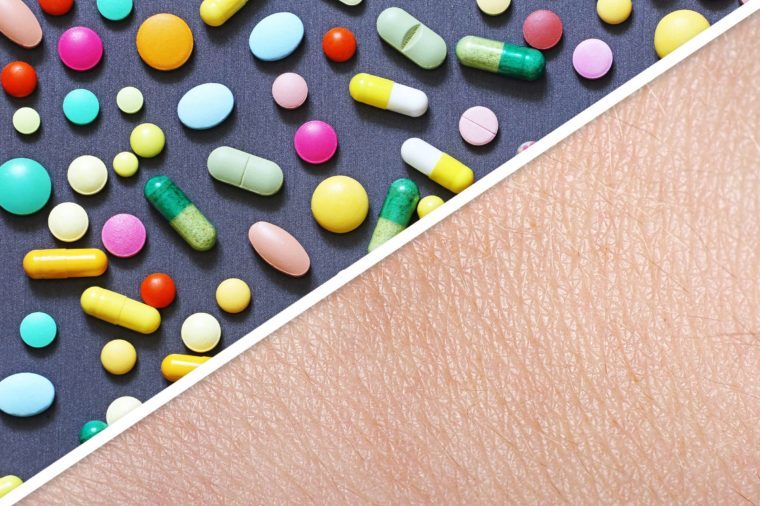 According to a recent U.S. Centers for Disease Control & Prevention study, at least 30 percent of antibiotics prescribed in the U.S. are unnecessary. Overuse of these drugs can create antibiotic-resistant superbugs, and kill the “good” bacteria in our intestines and skin along with the bad. “These good bugs have the power to fight the infectious bugs and rampant inflammation underlying skin disorders and systemic illnesses,” Dr. Bowe says. “Our obsession with antibacterial soaps and hand sanitizers is exacerbating this issue.” Of course, you do want to take the meds when necessary. Here are the essential questions to ask your doctor before taking antibiotics.
According to a recent U.S. Centers for Disease Control & Prevention study, at least 30 percent of antibiotics prescribed in the U.S. are unnecessary. Overuse of these drugs can create antibiotic-resistant superbugs, and kill the “good” bacteria in our intestines and skin along with the bad. “These good bugs have the power to fight the infectious bugs and rampant inflammation underlying skin disorders and systemic illnesses,” Dr. Bowe says. “Our obsession with antibacterial soaps and hand sanitizers is exacerbating this issue.” Of course, you do want to take the meds when necessary. Here are the essential questions to ask your doctor before taking antibiotics.
You forget daily sunscreen
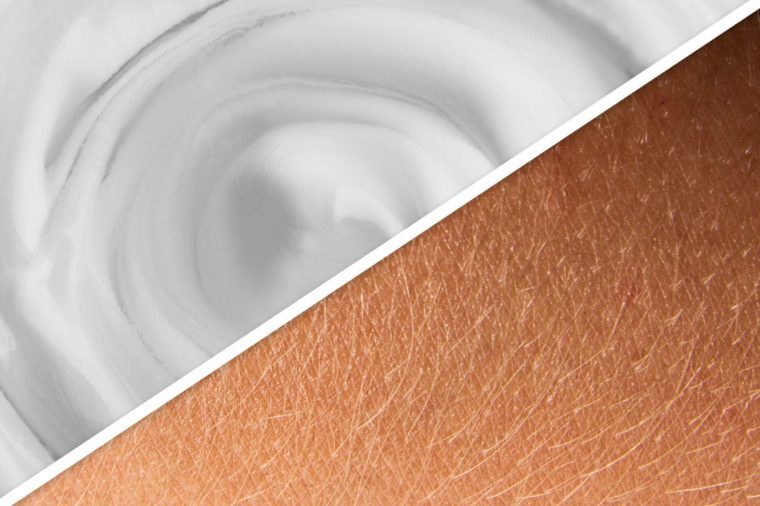 Not a shocker: Sunscreen can help prevent skin problems, including skin cancer. But you must use it daily, not just when you go to the beach or pool. “Sun exposure is the number one cause of premature skin aging,” Dr. Bowe says. “I use sunscreen every day, rain or shine, even in winter on my face and neck.” When you are outside in the summer, she also suggests a floppy hat, a UVF swimsuit, and seeking shade when possible. And don’t skip the critical spots dermatologists wish you’d remember to apply sunscreen.
Not a shocker: Sunscreen can help prevent skin problems, including skin cancer. But you must use it daily, not just when you go to the beach or pool. “Sun exposure is the number one cause of premature skin aging,” Dr. Bowe says. “I use sunscreen every day, rain or shine, even in winter on my face and neck.” When you are outside in the summer, she also suggests a floppy hat, a UVF swimsuit, and seeking shade when possible. And don’t skip the critical spots dermatologists wish you’d remember to apply sunscreen.
You don’t wear sunglasses
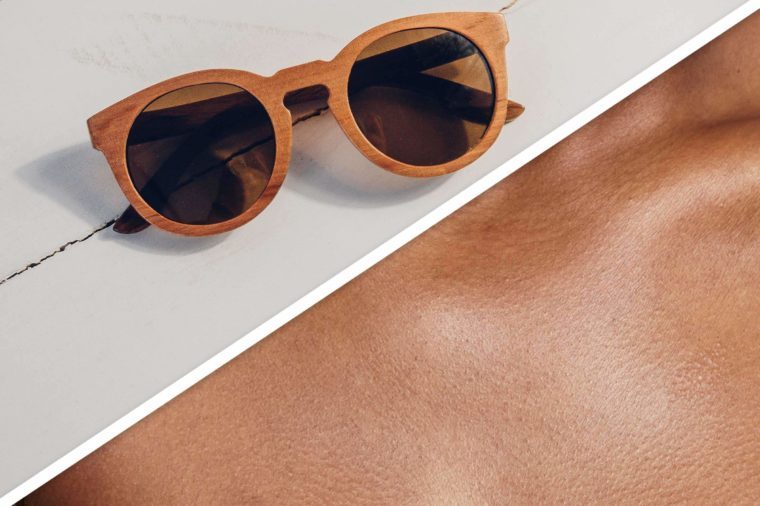 Sunglasses don’t just protect your eyes—they protect the delicate skin around your peepers. According to the American Academy of Dermatology, wearing sunglasses can help reduce lines caused by squinting. (In fact, the AAD says any repetitive facial movements can cause wrinkles, which would include frequently drinking through a straw.) Be sure to use sunglasses with UV protection, and clean them frequently to prevent dirt buildup on the nose pads, which can irritate skin. Here’s what else you need to know before buying sunglasses.
Sunglasses don’t just protect your eyes—they protect the delicate skin around your peepers. According to the American Academy of Dermatology, wearing sunglasses can help reduce lines caused by squinting. (In fact, the AAD says any repetitive facial movements can cause wrinkles, which would include frequently drinking through a straw.) Be sure to use sunglasses with UV protection, and clean them frequently to prevent dirt buildup on the nose pads, which can irritate skin. Here’s what else you need to know before buying sunglasses.
You consume alcohol
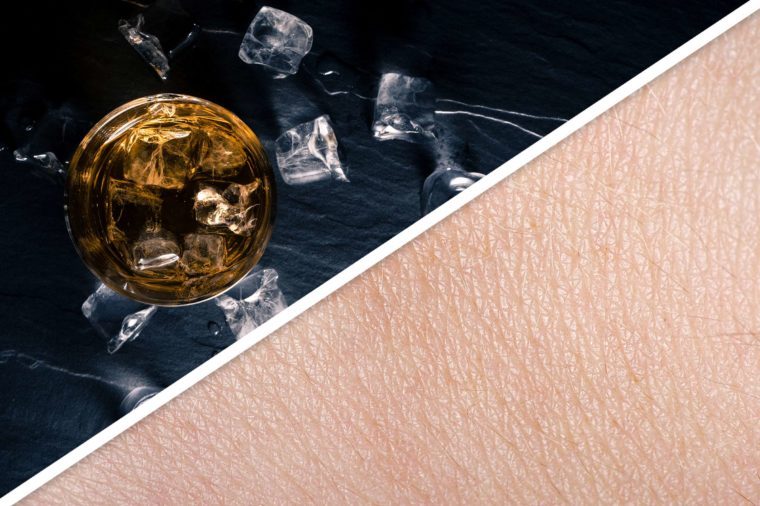 One of the ways you might be making yourself dehydrated is imbibing frequently. This can wreak havoc on your skin, which craves moisture. “Alcohol dehydrates your skin by acting as a diuretic and by impacting a hormone called vasopressin, which tells your kidneys to reabsorb some of the water that’s about to leave your body,” Dr. Bowe says. “Alcohol hinders the production of vasopressin, so it doesn’t allow your body to reabsorb that needed water, and your skin looks tired and sallow, with more pronounced fine lines, wrinkles, and pores.”
One of the ways you might be making yourself dehydrated is imbibing frequently. This can wreak havoc on your skin, which craves moisture. “Alcohol dehydrates your skin by acting as a diuretic and by impacting a hormone called vasopressin, which tells your kidneys to reabsorb some of the water that’s about to leave your body,” Dr. Bowe says. “Alcohol hinders the production of vasopressin, so it doesn’t allow your body to reabsorb that needed water, and your skin looks tired and sallow, with more pronounced fine lines, wrinkles, and pores.”
You avoid veggies
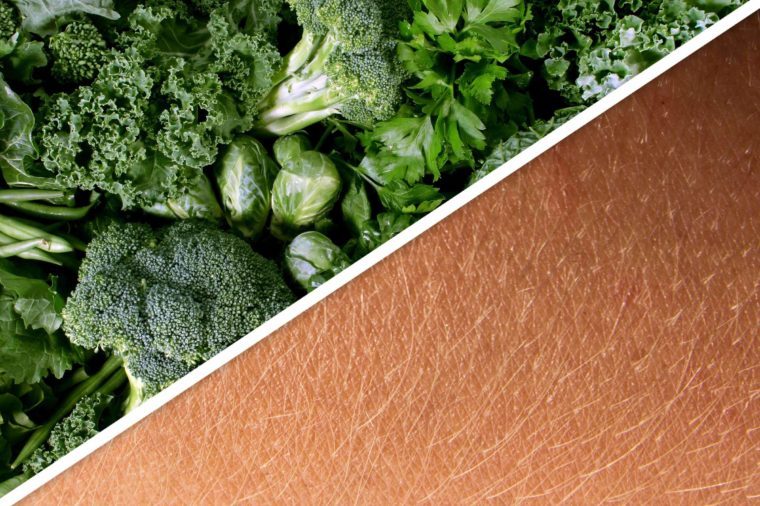 If you’re not loading your plate with antioxidant-rich fruits and vegetables, your skin is missing out. “Numerous studies have demonstrated that antioxidants can slow down or even reverse signs of aging, including fine lines, wrinkles, and brown spots, by protecting the skin from the ravages of sunburn, inflammation, and DNA damage,” Dr. Bowe says. “Antioxidants help squelch and neutralize free radicals to stop them from damaging your skin.” They can also calm inflammatory responses that fuel skin conditions like acne, eczema, rosacea, and psoriasis. Which antioxidant fruits and vegetables should you be eating? Dr. Bowe advises anything brightly colored, like tomatoes, berries, carrots, and sweet potatoes. She also advises using antioxidant skin-care products, or a supplement like Heliocare. Find out more of the top antioxidant fruits and veggies to add to your grocery list today.
If you’re not loading your plate with antioxidant-rich fruits and vegetables, your skin is missing out. “Numerous studies have demonstrated that antioxidants can slow down or even reverse signs of aging, including fine lines, wrinkles, and brown spots, by protecting the skin from the ravages of sunburn, inflammation, and DNA damage,” Dr. Bowe says. “Antioxidants help squelch and neutralize free radicals to stop them from damaging your skin.” They can also calm inflammatory responses that fuel skin conditions like acne, eczema, rosacea, and psoriasis. Which antioxidant fruits and vegetables should you be eating? Dr. Bowe advises anything brightly colored, like tomatoes, berries, carrots, and sweet potatoes. She also advises using antioxidant skin-care products, or a supplement like Heliocare. Find out more of the top antioxidant fruits and veggies to add to your grocery list today.
You smoke
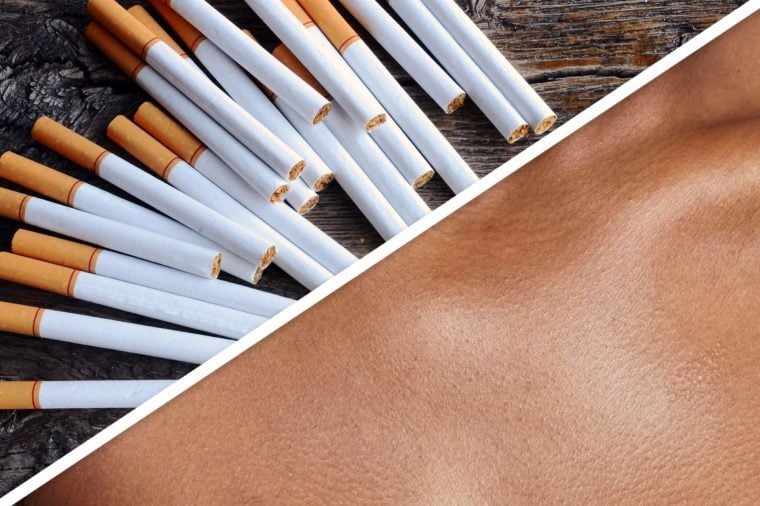 Smoking is basically the opposite of consuming antioxidants—the toxins increase the production of free radicals while attacking the body’s ability to fight them. “When you are exposed to a lot of free radicals, it means you are suffering from oxidative stress, and too much oxidative stress can lead to premature aging,” Dr. Bowe says. “Smokers’ bodies’ antioxidant potential is severely weakened and, frankly, overpowered by the volume of oxidation.” Environmental stressors will take their toll on everyone’s skin, but smoking speeds up this process, according to research. These are the mind-blowing ways your body heals after you quit smoking.
Smoking is basically the opposite of consuming antioxidants—the toxins increase the production of free radicals while attacking the body’s ability to fight them. “When you are exposed to a lot of free radicals, it means you are suffering from oxidative stress, and too much oxidative stress can lead to premature aging,” Dr. Bowe says. “Smokers’ bodies’ antioxidant potential is severely weakened and, frankly, overpowered by the volume of oxidation.” Environmental stressors will take their toll on everyone’s skin, but smoking speeds up this process, according to research. These are the mind-blowing ways your body heals after you quit smoking.
You skimp on sleep
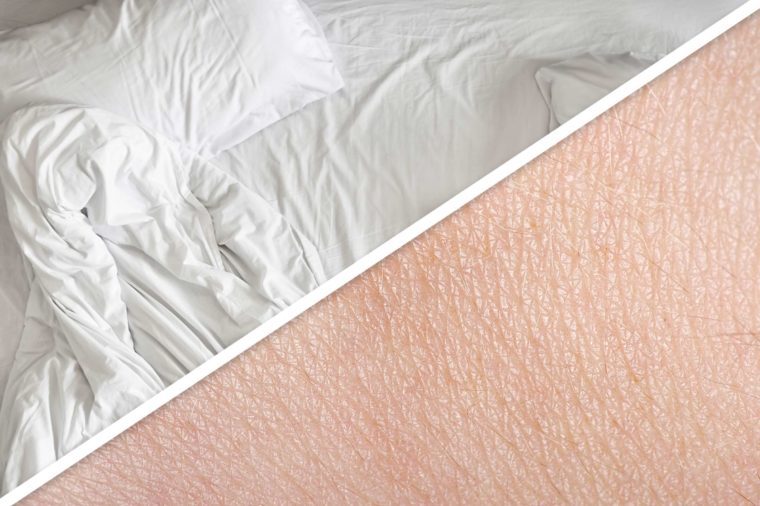 “We don’t call it beauty sleep for nothing,” Dr. Bowe says. “The body’s cells regenerate during sleep, so when you don’t get enough, cellular turnover—including the skin’s—comes to a halt, and you’re left with a dull, compromised appearance.” Not getting sleep can lead to dark circles, redness, and wrinkles—and can actually age your skin, according to research. Plus, “sleep deprivation affects the skin’s natural barrier function, and can lead to dryness and increased sensitivity to irritation,” Dr. Bowe says. There are all the wonderful things you don’t realize are happening to your skin while you sleep.
“We don’t call it beauty sleep for nothing,” Dr. Bowe says. “The body’s cells regenerate during sleep, so when you don’t get enough, cellular turnover—including the skin’s—comes to a halt, and you’re left with a dull, compromised appearance.” Not getting sleep can lead to dark circles, redness, and wrinkles—and can actually age your skin, according to research. Plus, “sleep deprivation affects the skin’s natural barrier function, and can lead to dryness and increased sensitivity to irritation,” Dr. Bowe says. There are all the wonderful things you don’t realize are happening to your skin while you sleep.
You’ve given up coffee
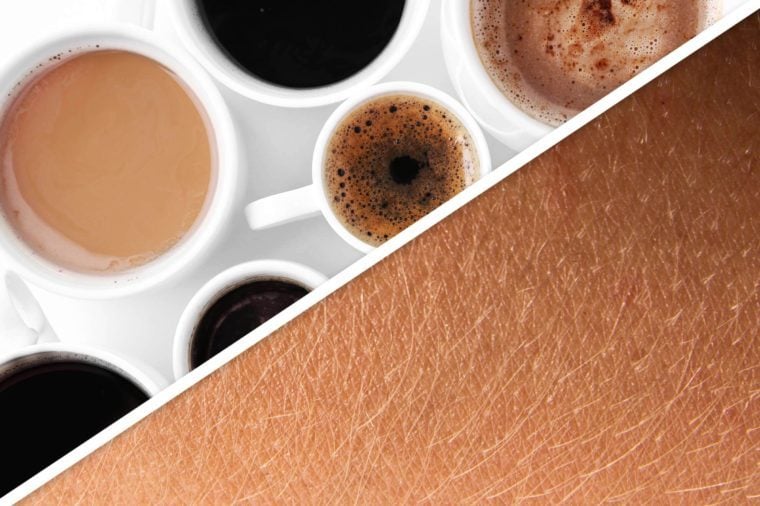 One habit that actually might be good for you is your daily cup of java. Along with other health benefits, in moderate amounts, certain properties in coffee may help keep your skin healthy. “Although we typically think about antioxidants in terms of colorful fruits and veggies, surprisingly, coffee’s flavonoids pack a powerful punch of antioxidants as well,” Dr. Bowe says. “These antioxidants fight premature aging arising from damaging free radicals, light, and pollution.” She advises sticking to one or two cups a day, and then switching to green tea or matcha for more antioxidant power. Find out other things that happen to your body when you drink coffee every day.
One habit that actually might be good for you is your daily cup of java. Along with other health benefits, in moderate amounts, certain properties in coffee may help keep your skin healthy. “Although we typically think about antioxidants in terms of colorful fruits and veggies, surprisingly, coffee’s flavonoids pack a powerful punch of antioxidants as well,” Dr. Bowe says. “These antioxidants fight premature aging arising from damaging free radicals, light, and pollution.” She advises sticking to one or two cups a day, and then switching to green tea or matcha for more antioxidant power. Find out other things that happen to your body when you drink coffee every day.
You pop pimples
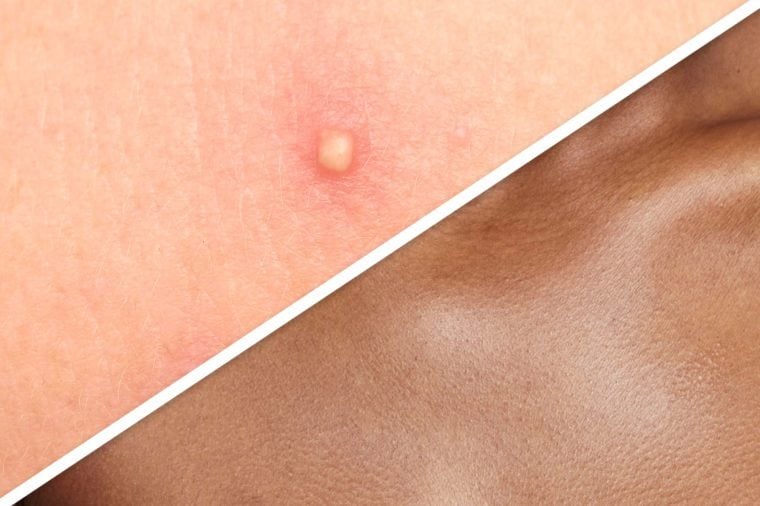 “Popping pimples is particularly bad for your skin because you are pushing inflammatory cells deeper inter the dermis, which in turn increases your risk for dark spots and scars,” Dr. Bowe says. “My best advice? Prevention is key, and using a retinol all over your face is a great way to prevent pimples,” Dr. Bowe says. Ease your skin into a retinol regimen with a gentler product like Dermalogica’s Overnight Retinol Repair, she says. Don’t miss the other seemingly innocent habits that can cause acne scars.
“Popping pimples is particularly bad for your skin because you are pushing inflammatory cells deeper inter the dermis, which in turn increases your risk for dark spots and scars,” Dr. Bowe says. “My best advice? Prevention is key, and using a retinol all over your face is a great way to prevent pimples,” Dr. Bowe says. Ease your skin into a retinol regimen with a gentler product like Dermalogica’s Overnight Retinol Repair, she says. Don’t miss the other seemingly innocent habits that can cause acne scars.
[“Source-rd”]
